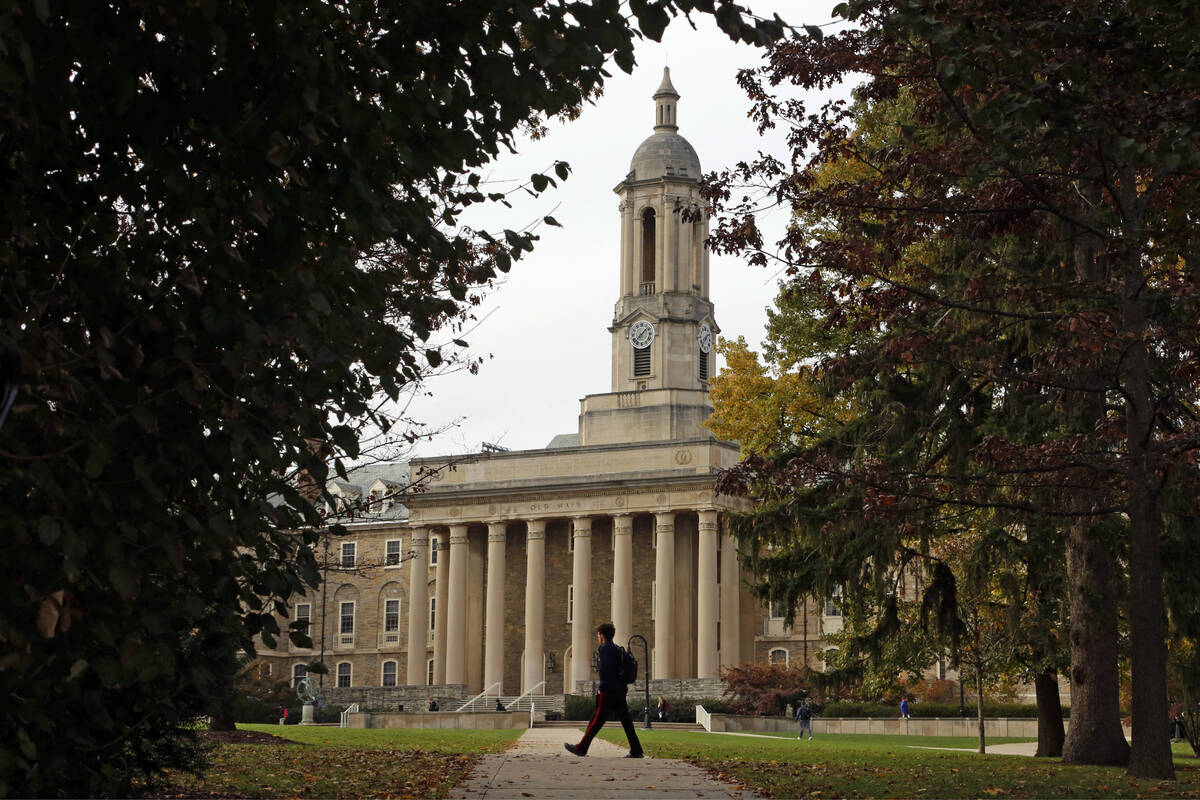RUBEN NAVARRETTE JR.: A college degree is valuable, but life lessons can be priceless
As a high school senior carrying a full load of classes, in addition to shuttling younger siblings around, my 17-year-old daughter is much too busy to read her old man’s column.
Today, that’s a good thing. I’m hoping that she won’t read this one. Because she’s applying to more than a dozen colleges, I have no desire for her to read what I’m about to share with you.
So let’s just treat this as our little secret, shall we?
There’s a renewed debate underway over whether college is worth the cost and whether a university degree is still the boost up the economic ladder that it used to be. What’s the point, some ask, of going to MIT or SMU or BYU or UCLA if there’s only a meager ROI?
Among those driving this important national conversation is Nicole Smith, a research professor and chief economist at the Georgetown University Center on Education and the Workforce.
Smith was recently a guest on both the SiriusXM radio show and CNN show hosted by Michael Smerconish. Smith has a doctorate, and Smerconish has a law degree. Yet there they were, entertaining the notion floated by Smerconish that maybe our society has “oversold” the importance of college and undervalued the benefit of what Smith calls “middle skills.”
In an op-ed published at the host’s website, Smerconish.com, Smith acknowledged the value of higher education — sort of.
“The job market continues to reward workers for higher levels of education, in general, but there are many associate’s degrees that pay more than a bachelor’s degree and many test-based certifications and licenses that pay more than an associate’s degree,” she wrote.
Then comes the gut punch.
Smith continues: “Nine percent of workers without a high school diploma, 16 percent of high school graduates, 23 percent of workers with some college education but no degree, and 28 percent of associate’s degree holders earn more than what half of workers with a bachelor’s degree earn.”
And that’s why I hope my teenager doesn’t read this column. I know this kid. If she hears anyone questioning the value of going to college, she’ll seize upon it and put the brakes on the college admissions process quicker than you can say “gap year.”
That’s a nonstarter for Mom and Dad.
In response to Smith’s piece, one college graduate tweeted, “You mean I’ve done all this schooling for nothing?”
As the cost of a college education soars to the point where many U.S. families feel that it’s out of reach, a lot of Americans already were primed to question the financial sanity of pursuing a college degree. Then came the pandemic, the trend of workers wanting to work from home and the Great Resignation.
All that helped create a severe labor shortage in the United States and forced employers to broaden their criteria for hiring new workers, Smith says. Now, more of them are throwing out the requirement of a college degree and putting new emphasis on other skills.
This is a positive trend. It could be a permanent one. Even if the job market shifts and employers have more leverage, requiring a college degree for employment might be a thing of the past. And it ought not be limited to the job market.
What about college itself? As admissions officers decide who gets in and who doesn’t, more of them should put a premium on social skills, after-school and summer work experience, problem-solving, willingness to compromise, critical thinking as well as the ability to communicate and empathize.
When hiring, employers should care less about where an applicant went to college and more about whether the person can play well with others, admit mistakes, compromise, share credit, communicate effectively, be a team player and look at issues from a different point of view.
As for those who are now questioning whether a college diploma — or even a graduate school degree — is an automatic ticket to “success,” they are right to be skeptical. There are many nonacademic factors that can help someone succeed. They include whom you marry and where you choose to live, whether you will move to take a job, whether you can hustle and make your own opportunities, whether you can learn new skills and make good decisions, whether you can communicate clearly and tell your story effectively and — of greatest importance — whether you can persevere and get up when you get knocked down.
These are things they don’t teach in a book. These priceless lessons come the hard way, courtesy of the best teacher of all: life.
Ruben Navarrette’s email address is crimscribe@icloud.com. His podcast, “Ruben in the Center,” is available through every podcast app.





















